

When I was a kid, I spend an enormous amount of time looking for Japanese media and translations of upcoming games. Famitsu scans of Super Mario RPG no one translated made the wait for my Nintendo Power magazine unbearable. The realization that Secret of Mana 2 (Seiken Densetsu 3) wouldn’t be in English was soul crushing, causing me to stare longingly at screenshots filled with text I couldn’t begin to fathom. I spent Japan’s Pokemon launch days in front of a computer, obsessively hitting the refresh button on several internet websites, trying to get the newest information before anyone else. To me, Japan was games.
And then I played Asheron’s Call and nearly abandoned consoles. MMOs blew me away. They better realized worlds that JPRGs only hinted at. Yes, I still checked Japan-only news on some games, like the early release of Smash Bros and Pokemon games, and obssessively played the Japan-exclusive Mother 3 with a Japanese-to-English dictionary constantly by my side, but in general, I almost forgot how Japan-centric my early gaming days were. When Square released Final Fantasy 11, I realized I had never played a Japanese MMO, and sadly, after a few weeks, I found it really wasn’t anything special compared to what I’d already experienced. If Final Fantasy couldn’t do MMOs right, what hope was there for the Japanese MMO scene? Unknowingly, this question sadly hinted at larger problems in the online gaming world of Japan.

This being part one, I figure we should go over how this article was written. Part one will focus more on games with some cultural observances, while part two will focus more on the cultural and business issues.
Now, I’ll be blunt: a good amount of my information is personal. I’ve encountered Japanese players in Star Wars Galaxies and Star Wars: The Old Republic on American servers. I’ve played both Darkfall and ArcheAge on Japanese servers. I joined a Japanese guild on the western for Perfect World’s Neverwinter MMO, chatted with random gamers I’ve met here in Japan, and read a few articles by people whose Japanese is much, much better than mine and will frequently link to their work. Being that these are private citizens, I’ll give little to no information on them, but unless otherwise stated, these are the opinions I’ve gotten from Japanese people, not foreigners living here.
However, I also interviewed several authorities on the matter. People with vested interest in the Japanese online gaming market. While getting the average gamer’s perspective is important, I felt getting information from people in the industry,whose knowledge (or lack of it) means putting food on the table, would add quite a bit more weight to this. While I’m obviously plugging their products/corporations, know that I’ve received no money from these people and am in no way an investor/friend/family. They simply cover several areas of the market and are accessible enough for me to make use of them while offering a variety of perspectives you, the reader, will hopefully find helpful, especially in comparison to the personal experiences I’ve previously mentioned.
First, Akihabara eSport Square and their staff helped out in a very specific way: tracking the popularity of games being played at their game cafe. Kumiko Tasaki in particular helped coordinate the effort and get me information in English. I’ve talked about game cafes before, but those were mostly focused on very open gaming use, and not exclusively PC games, let alone online ones. This is Akiba eSports Square specialty, and is one of the few places that has specifically mentioned supporting both Blizzard’s Battle.net client and Steam, plus they are one of (if not the) biggest supporters of the eSports scene in Japan, the significance of which I’ll get to later.
Next, I have the husband/wife duo Matthieu and Keiko Guillemot. Matthieu, AKA Erhune, is French, but has been living in Japan for over a decade, fluent in the language and possessing a derth of knowledge of the western and Japanese gaming scenes, both mainstream and indie. As an indie developer of the Steam Greenlight space MMO Gangs of Space, his ability to apply his knowledge to game development while living in Japan is of the utmost importance, both for the future of his game and fledgling studio.
His Japanese wife, Keiko, runs Akiba MMO, the only Japanese-language MMO guild-community site I’ve been able to find in Japan, though it also has English language support and welcomes both other geekdoms and more traditional lifestyles. Though the site may seem quite simple compared to western standards, the truth of the matter is that Japan’s computer users are quite behind those of Europe and North America as I’ll discuss later, so the site’s design is partially influenced by Craigslist’s utilitarian design. Though Keiko became a PC gamer in college and has spent of a chunk of time playing Dofus and Hearthstone. She also spends time helping with PR for the Japanese PC gaming scene. I actually caught her the day she was leaving for an event promoting World of Tanks‘ cross promotion with a manga called Girls und Panzer.
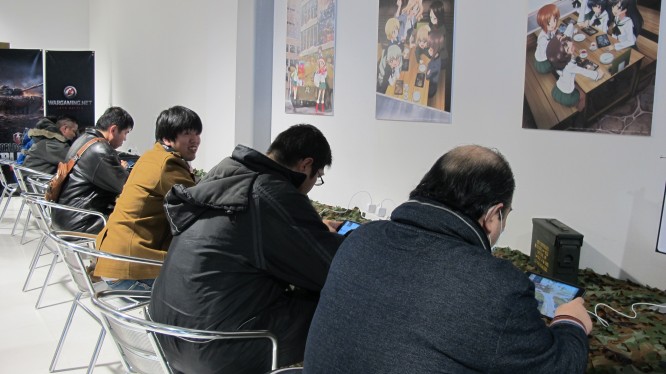
Now, we have our sources, but we’re still just beginning. There are some other cultural aspects we need to cover though, the most important of which is that there is no commonly known word for “MMO” in Japanese.
This is the response I usually get whenever I bring up MMORPGs to most mainstream Japanese gamers. Yes, I know Japan has an anime called Sword Art Online, but it’s referred to as an “online game.” There there is a wikipedia entry on the term MMORPG, but it’s a very specialized word not even used by the few MMO players I’ve met. Instead, people have told me they like “online games,” which is anything from online shooters and sports games to true MMOs. I’ve tried asking MMO gamers about this and the ones who understand the term have said that it is basically just used by advertisers and those who specialize in the genre, and that’s a very small pool of people. Matthieu guesses it’s only in the hundreds of thousands who, like many western MMO players these days, jump from game to game in hopes of finding a new home.
“Online games” is basically the term you’ll need to use when talking about MMOs to Japanese gamers, even the hardcore ones. You’ll also need to bring up games like Final Fantasy 14, Dragon Quest Online, and Phantasy Star Online 2 since these are the only MMOs most mainstream gamers in Japan will know. They may know Eve Online or Lineage 2 but that’s still rare.
“MOBA” is in the same department. DOTA 2 and Smite are mostly unheard of. Although Riot Games has a Tokyo office, the game is only available in English. In fact, the Japanese LJL season 1 final tournament and International Wild Card Invitation qualifying game are played on the North American version of LoL. While about 500 people are expected to show up, this is quite small considering the size of Tokyo’s large population versus Los Angeles’ and it’s 8,000 attendees. Gaming is still big in Japan, without a doubt, but it’s a different beast here entirely.
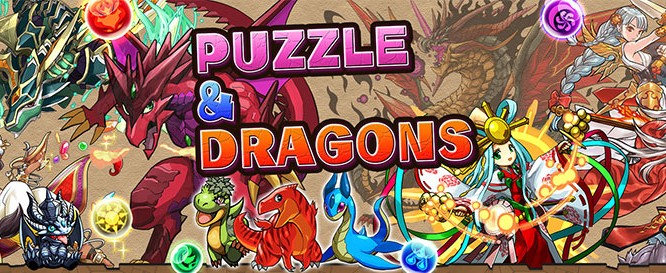
Imagine growing up without a PC. Your school only uses chalkboards and print-outs in class. Overhead projectors are given by the board of education to teachers who put them in dusty corners, unsure of how they teach with them, let alone operate them. Power Point won’t see classroom use until you reach college. “Windows” is a term for the operating system of a device you only use at work which, ironically, may be your only source of light due to the absence of actual windows. Welcome to Japan.
Now, that isn’t the story for everyone, but even as Keiko mentions, Japanese students today are just beginning to have access to computers in high school. I personally work for some of the better schools in my region (Kanto, where Tokyo is, though I’m in a different prefecture) and see the lack of technology on a daily basis. If you think your teachers were technologically inept five or ten years ago, imagine them being that way today. Few people, not just educators, know what Internet Explorer is, let alone alone the meaning of “browser.” In short, this is not a PC friendly country.
No, instead, people have smart phones. Their email addresses change with their phone, Android is considered a little exotic and somehow difficult to use, and little old ladies on the train are playing games similar to Farmville or Bejewelled. Some mobile games, such as Puzzle and Dragons, can be played online via cell phone with friends, but interaction is generally similar to Facebook games. Between this and the land that gave birth to console gaming, both home and mobile variations, PC gaming is very much a niche genre. In fact, online gaming is probably better known within the realm of console gaming than PC gaming.
It’s not all bad though. Some people, such as Keiko and many people I talked to while playing Neverwinter with, were worried that mobile gaming may be a threat to the PC gaming market, but others, such as Matthieu and the staff of Akiba eSports Square, are more optimistic, noting that mobile games make gaming slightly more acceptable as a past time in Japan, and may even help people discover PC gaming. Gaming in general is looked down on, but the mobile market is helping to dispel that image.
The same is true for consoles. Everyone I spoke to felt that adapting PC games for consoles could boost the overall online gaming market. Having pioneered them, Japanese gamers expect the best games to be on consoles. Everyone I spoke to said that releasing a PC game for consoles would vastly increase a game’s popularity. Admittedly, due to mobile games, some Japanese people now also expect true quality games to appear on smartphones, but this is attributed more to common Japanese people than core gamers. Getting a game that works on PC and consoles, such as Final Fantasy 14 or the Phantasy Star Online series, really boosts sales. In fact, Matthieu said he’d like to be able to publish Gangs of Space on consoles too if he had the money for it, but PC is just more affordable. The console market really is that important here.
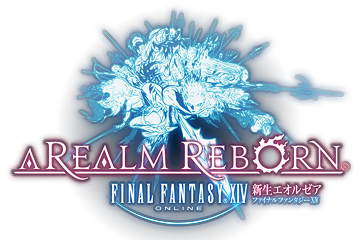
When asked about what online games are popular, the titles that repeatedly came up were Final Fantasy 14 and shooters in general, with Call of Duty being a big one. The staff of Akihabara eSports Square also mentioned the Korean shooter Alliance of Valiant Arms due to their specialization in e-sports games. Former popular MMOs included Lineage 2, the Phantasy Star Online games (the second is still reasonably popular), and Eve Online is kind of known. For general online games, Monster Hunter, which I previously covered precisely because of it’s MMO-like qualities, came up several times.
Akihabara eSports Square perhaps revealed some of the most telling information: their top 5 most popular games. Obviously League of Legends is their most popular game since they support the league and esports in general. This is perhaps why Alliance of Valiant Arms, StarCraft, Hearthstone, and World of Tanks are the among their most popular games. Now, keep in mind that this is a business, and although niche, creating a business around too small of a niche culture wouldn’t be profitable. Though the current location is only a little more than year old, eSports Square was actually founded in Ichikawa, Japan in 2011, taking about a year off to move to their new location. Being able to make enough money for a relocation to an expensive part of Tokyo is proof that these guys know their market and have used their expertise to continue growing.
But as you can see, there’s no MMOs in that list, and not just because this place specializes in e-sports. Again, FF14 and the PSO series were the only MMOs mentioned when I asked about current popular online games, aside from one other I’ll mention later in this section. When I asked about “online games,” people said Monster Hunter and Call of Duty. The eSports Square people, despite their specialty, immediately mentioned Tekken, Street Fighter, and Pro Evolution Soccer 2015 (known as Winning Eleven here in Japan). While CoD is available for PC, it’s mostly known as a console game. The meaning of “online game” is just so broad here, but the genre isn’t yet big enough for other specialized terms to have taken off with most gamers.
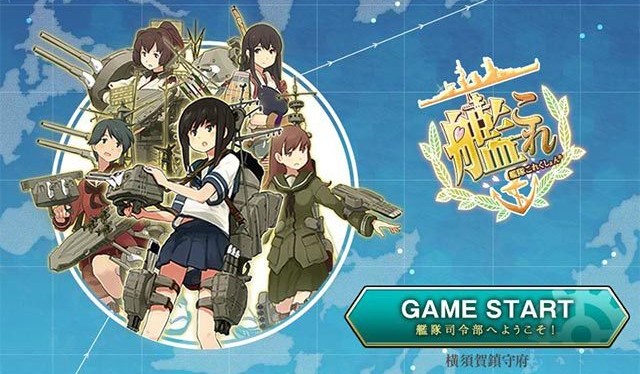
Kantai Collection
However, Keiko and Matthieu separately mentioned a game called Kantai Collection. It’s an online game, but browser based, and actually may be a reason why PC gaming has seen a slight increase lately. Why? Because it’s a flash based game, and iPad and iphones, which are so popular that anything shaped like them are automatically assumed to be Apple products, do not use flash. Since a rather inexpensive machine can run the game, it means people can have a home PC capable of light gaming, and that’s exactly what’s needed to help boost the online gaming market. While this means something graphically intensive, like ArcheAge, probably won’t become popular in Japan any time soon, the Akiba eSports staff noted that cartoon/fantasy based MMOs are Japan’s speciality, so much so that even cheap Korean/Chinese free-to-play games using this style can do decently for a bit. The few MMOs I see advertised or have had students admit to playing in Japan have utilized anime-style graphics.
In fact, an online game called Kantai Collection just got an anime this year after being in development from around the same time as the game launched. As any anime fan can tell you, if you’ve got a game and an anime, your popularity can start to snowball into something quite large, even if it’s short lived. Though it may sound racist, the simple truth is that Japanese consumers seem to prefer less realistic aesthetics. In fact, two well known Japanese youtubers who do “Let’s Play” videos (which is kind of rare here) and specialize in shooters but dislike MMOs, recently mentioned this cultural phenomenon. This may be why Blizzard’s Diablo and StarCraft haven’t exactly taken off here, but League of Legends at least is popular enough to warrant Riot’s presence. However, there’s still a rather important issue for Japanese gamers to overcome: the language barrier, which we’ll discuss next time.

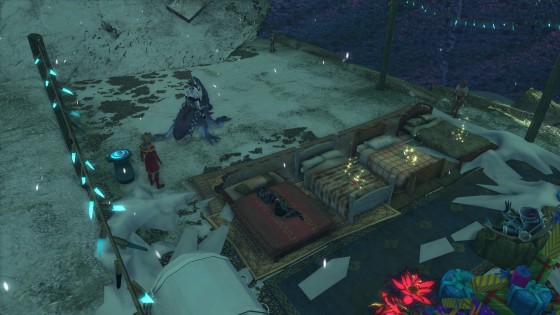



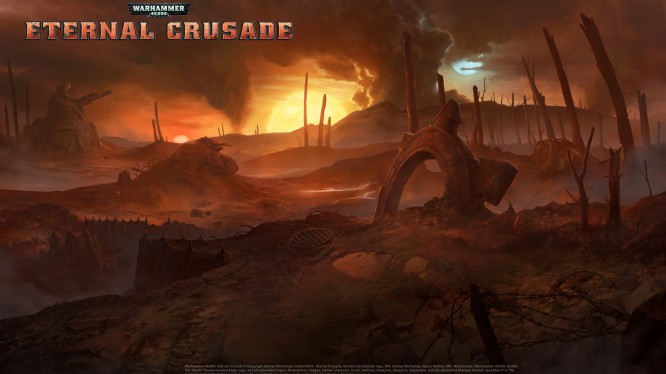 Adeptus Auctores: Introducing Warhammer 40k Eternal Crusade .
Adeptus Auctores: Introducing Warhammer 40k Eternal Crusade . Fallout Shelter: Tips for New Players
Fallout Shelter: Tips for New Players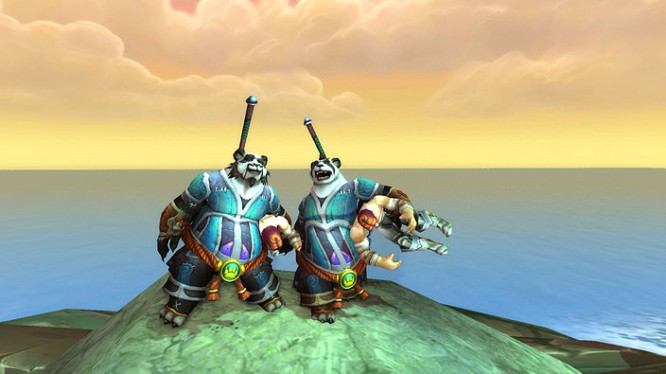 MMOs: Give Me The Money! .
MMOs: Give Me The Money! . Plants vs. Zombies 2: How to Survive Day 8 of Jurassic Marsh
Plants vs. Zombies 2: How to Survive Day 8 of Jurassic Marsh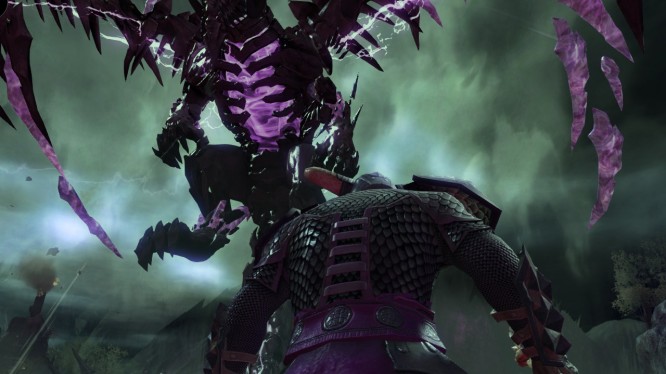 The Tyrian Chronicle: Building Better Guilds .
The Tyrian Chronicle: Building Better Guilds .